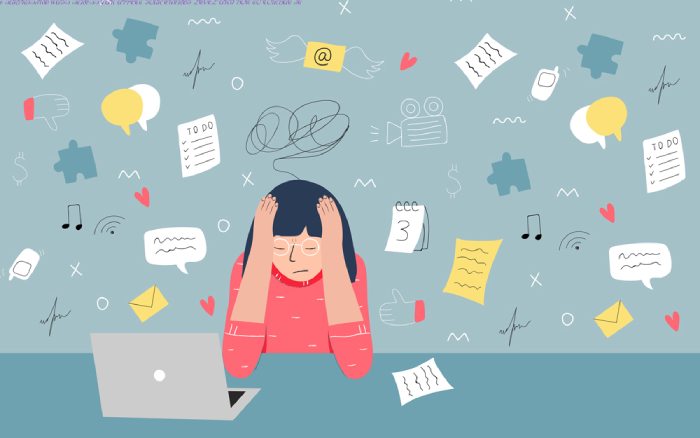Many individuals are not aware of how much stress may deplete one’s vitality and cause exhaustion. This blog post will discuss six unexpected ways that stress may lower your energy levels and provide coping mechanisms.
1. Fatigue of the Adrenals
Even after receiving lots of good sleep, adrenal fatigue—a condition when the body produces too much cortisol due to ongoing stress—can result in excessive weariness. Try taking supplements containing B vitamins, which are believed to help control cortisol levels in the body to prevent adrenal tiredness brought on by excessive levels of cortisol production as a result of stress. If you want a little daily boost, you may also try taking a caffeine inhaler.
2. Decreased Circulation
Our bodies go into fight-or-flight mode when we are under stress, which lowers blood flow to every part of our body, including the brain. This decrease in blood flow causes fatigue all around, as well as issues with memory and concentration.
Focusing on relaxation methods like yoga or even just setting aside a short period each day to concentrate on your breathing and clear your mind can help counteract this stress-causing impact and improve blood flow throughout your body.
3. Lack of Sleep
Unexpectedly but powerfully, sleep loss is one way that stress may affect our energy levels. Tension keeps the mind hyperaware, which prevents us from getting the restorative sleep we need to replenish our energy and heal our bodies.
This lack of restorative sleep generates a vicious cycle, with stress and exhaustion worsening each other, finally leading to a significant loss in general productivity and well-being.
Establishing a regular sleep schedule and using relaxation methods before bed, including progressive muscle relaxation or mindfulness, are crucial steps in implementing healthy sleep habits that will successfully prevent this.
By doing this, we enable our mind to detach from the stresses of everyday life and go into a restorative, deep sleep that will eventually boost our vitality and energy levels.
4. Inadequate Digestion
Stress has an impact on digestion because it causes the stomach to produce more acid, which causes indigestion and bloating. This might leave us feeling drained and sluggish, bloated, or uncomfortable after eating.
Consuming probiotic-rich foods like kimchi or yogurt helps balance gut flora, which enhances digestion and lessens indigestion symptoms like bloating and discomfort after meals. It also increases overall energy levels throughout the day without the need for additional stimulants like sugar or caffeine.
5. Tension in the muscles
If stress is not well controlled, it can lead to muscular tension, which depletes us emotionally and physically. Tense muscles restrict blood flow, which leaves us feeling lethargic all day.
It’s essential to stretch to combat the tense muscles brought on by ongoing stress! Spending a few minutes each day doing some simple stretching exercises will help you feel more energized in the long run by lowering blood pressure, increasing oxygenated blood flow, improving mobility, and improving circulation.
6. Hormonal Misalignment
Many people might be surprised to learn that stress can significantly affect our energy levels since it frequently affects hormone imbalances.
Stress causes the release of cortisol, also referred to as the “stress hormone,” which, in excess, may have disastrous effects on our bodies.
High cortisol can cause adrenal exhaustion, which lowers our energy levels significantly. This can have a detrimental impact on our mental and emotional health in addition to making us feel worn out.
Additionally, using relaxation techniques like deep breathing exercises, mindfulness meditation, or even professional guidance may help reduce stress and improve hormonal balance, which in turn helps us sustain a consistent and healthy level of energy throughout the day.
Last Words
As you can see, chronic stress may affect our everyday lives in a variety of ways that we may not even be aware of! We may rebalance our lives to perform at our best by engaging in mindful activities like yoga, deep breathing techniques, and even utilizing a coffee inhaler!
Also read:- Tinnitus Treatment: Relief of Anxiety and Depression
